1809 Died: Thomas Paine, English-American theorist and author (b. 1737)
Thomas Paine (born Thomas Pain) (February 9, 1737 [O.S. January 29, 1736] – June 8, 1809) was an English-born American political activist, philosopher, political theorist, and revolutionary. He authored the two most influential pamphlets at the start of the American Revolution and inspired the patriots in 1776 to declare independence from Great Britain. His ideas reflected Enlightenment-era ideals of transnational human rights. Historian Saul K. Padover described him as "a corsetmaker by trade, a journalist by profession, and a propagandist by inclination".
Born in Thetford in the English county of Norfolk, Paine migrated to the British American colonies in 1774 with the help of Benjamin Franklin, arriving just in time to participate in the American Revolution. Virtually every rebel read (or listened to a reading of) his powerful pamphlet Common Sense (1776), proportionally the all-time best-selling American title, which catalysed the rebellious demand for independence from Great Britain. His The American Crisis (1776–1783) was a pro-revolutionary pamphlet series. Common Sense was so influential that John Adams said: "Without the pen of the author of Common Sense, the sword of Washington would have been raised in vain". Paine lived in France for most of the 1790s, becoming deeply involved in the French Revolution. He wrote Rights of Man (1791), in part a defense of the French Revolution against its critics. His attacks on Anglo-Irish conservative writer Edmund Burke led to a trial and conviction in absentia in England in 1792 for the crime of seditious libel.
The British government of William Pitt the Younger, worried by the possibility that the French Revolution might spread to England, had begun suppressing works that espoused radical philosophies. Paine's work, which advocated the right of the people to overthrow their government, was duly targeted, with a writ for his arrest issued in early 1792. Paine fled to France in September where, despite not being able to speak French, he was quickly elected to the French National Convention. The Girondists regarded him as an ally. Consequently, the Montagnards, especially Maximilien Robespierre, regarded him as an enemy.
In December 1793, he was arrested and was taken to Luxembourg Prison in Paris. While in prison, he continued to work on The Age of Reason (1793–1794). James Monroe, a future President of the United States, used his diplomatic connections to get Paine released in November 1794. Paine became notorious because of his pamphlets. The Age of Reason, in which he advocated deism, promoted reason and free thought and argued against institutionalized religion in general and Christian doctrine in particular. He published the pamphlet Agrarian Justice (1797), discussing the origins of property and introduced the concept of a guaranteed minimum income through a one-time inheritance tax on landowners. In 1802, he returned to the U.S. When he died on June 8, 1809 only six people attended his funeral as he had been ostracized for his ridicule of Christianity.
US Stamp and First Day Cover depicting Thomas Paine
1810 Born: Robert Schumann, German composer and critic (d. 1856)
Robert Schumann (8 June 1810 – 29 July 1856) was a German composer, pianist, and influential music critic. He is widely regarded as one of the greatest composers of the Romantic era. Schumann left the study of law, intending to pursue a career as a virtuoso pianist. His teacher, Friedrich Wieck, a German pianist, had assured him that he could become the finest pianist in Europe, but a hand injury ended this dream. Schumann then focused his musical energies on composing.
In 1840, after a long and acrimonious legal battle with Wieck, who opposed the marriage, Schumann married Wieck's daughter Clara. A lifelong partnership in music began, as Clara herself was an established pianist and music prodigy. Clara and Robert also maintained a close relationship with German composer Johannes Brahms.
Until 1840, Schumann wrote exclusively for the piano. Later, he composed piano and orchestral works, and many Lieder (songs for voice and piano). He composed four symphonies, one opera, and other orchestral, choral, and chamber works. His best-known works include Carnaval, Symphonic Studies, Kinderszenen, Kreisleriana, and the Fantasie in C. Schumann was known for infusing his music with characters through motifs, as well as references to works of literature. These characters bled into his editorial writing in the Neue Zeitschrift für Musik (New Journal for Music), a Leipzig-based publication that he co-founded.
Schumann suffered from a mental disorder that first manifested in 1833 as a severe melancholic depressive episode—which recurred several times alternating with phases of "exaltation" and increasingly also delusional ideas of being poisoned or threatened with metallic items. What is now thought to have been a combination of bipolar disorder and perhaps mercury poisoning led to "manic" and "depressive" periods in Schumann's compositional productivity. After a suicide attempt in 1854, Schumann was admitted at his own request to a mental asylum in Endenich near Bonn. Diagnosed with psychotic melancholia, he died of pneumonia two years later at the age of 46, without recovering from his mental illness.
Stamps from Russia, East and West Germany depicting Robert Schumann
1845 Died: Andrew Jackson, American general, judge, and politician, 7th President of the United States (b. 1767)
Andrew Jackson (March 15, 1767 – June 8, 1845) was an American soldier and statesman who served as the seventh president of the United States from 1829 to 1837. Before being elected to the presidency, Jackson gained fame as a general in the United States Army and served in both houses of the U.S. Congress. As president, Jackson sought to advance the rights of the "common man" against a "corrupt aristocracy" and to preserve the Union.
Born in the colonial Carolinas to a Scotch-Irish family in the decade before the American Revolutionary War, Jackson became a frontier lawyer and married Rachel Donelson Robards. He served briefly in the United States House of Representatives and the United States Senate, representing Tennessee. After resigning, he served as a justice on the Tennessee Supreme Court from 1798 until 1804. Jackson purchased a property later known as The Hermitage, and became a wealthy, slaveowning planter. In 1801, he was appointed colonel of the Tennessee militia and was elected its commander the following year. He led troops during the Creek War of 1813–1814, winning the Battle of Horseshoe Bend. The subsequent Treaty of Fort Jackson required the Creek surrender of vast lands in present-day Alabama and Georgia. In the concurrent war against the British, Jackson's victory in 1815 at the Battle of New Orleans made him a national hero. Jackson then led U.S. forces in the First Seminole War, which led to the annexation of Florida from Spain. Jackson briefly served as Florida's first territorial governor before returning to the Senate. He ran for president in 1824, winning a plurality of the popular and electoral vote. As no candidate won an electoral majority, the House of Representatives elected John Quincy Adams in a contingent election. In reaction to the alleged "corrupt bargain" between Adams and Henry Clay and the ambitious agenda of President Adams, Jackson's supporters founded the Democratic Party.
Jackson ran again in 1828, defeating Adams in a landslide. Jackson faced the threat of secession by South Carolina over what opponents called the "Tariff of Abominations." The crisis was defused when the tariff was amended, and Jackson threatened the use of military force if South Carolina attempted to secede. In Congress, Henry Clay led the effort to reauthorize the Second Bank of the United States. Jackson, regarding the Bank as a corrupt institution, vetoed the renewal of its charter. After a lengthy struggle, Jackson and his allies thoroughly dismantled the Bank. In 1835, Jackson became the only president to completely pay off the national debt, fulfilling a longtime goal. His presidency marked the beginning of the ascendancy of the party "spoils system" in American politics. In 1830, Jackson signed the Indian Removal Act, which forcibly relocated most members of the Native American tribes in the South to Indian Territory. The relocation process dispossessed the Indians and resulted in widespread death and disease. Jackson opposed the abolitionist movement, which grew stronger in his second term. In foreign affairs, Jackson's administration concluded a "most favored nation" treaty with Great Britain, settled claims of damages against France from the Napoleonic Wars, and recognized the Republic of Texas. In January 1835, he survived the first assassination attempt on a sitting president.
In his retirement, Jackson remained active in Democratic Party politics, supporting the presidencies of Martin Van Buren and James K. Polk. Though fearful of its effects on the slavery debate, Jackson advocated the annexation of Texas, which was accomplished shortly before his death. Jackson has been widely revered in the United States as an advocate for democracy and the common man. Many of his actions proved divisive, garnering both fervent support and strong opposition from many in the country. His reputation has suffered since the 1970s, largely due to his role in Native American removal. Surveys of historians and scholars have ranked Jackson favorably among U.S. presidents.
US Stamps depicting Andrew Jackson
1867 – Coronation of Franz Joseph as King of Hungary following the Austro-Hungarian compromise (Ausgleich).
The Austro-Hungarian Compromise of 1867 (German: Ausgleich, Hungarian: Kiegyezés) established the dual monarchy of Austria-Hungary. The compromise put an end to the 18 years long military dictatorship and absolutist rule over Hungary, which was introduced by Francis Joseph after the Hungarian Revolution of 1848. The Compromise partially re-established the former sovereignty of the Kingdom of Hungary, however being separate from, but no longer subject to the Austrian Empire. The agreement also restored the old historic constitution of the Kingdom of Hungary.
The Hungarian political leaders had two main goals during the negotiations. One was to regain the traditional status (both legal and political) of the Hungarian state, which was lost after the Hungarian Revolution of 1848. The other was to restore the series of reform laws of the revolutionary parliament of 1848, which were based on the 12 points that established modern civil and political rights, economic and societal reforms in Hungary. Even the April Laws of the Hungarian revolutionary parliament (with the exception of the laws based on the 9th and 10th points) were restored by Francis Joseph.
Under the Compromise, the lands of the House of Habsburg were reorganized as a real union between the Austrian Empire and the Kingdom of Hungary, headed by a single monarch who reigned as Emperor of Austria in the Austrian half of the empire, and as King of Hungary in Kingdom of Hungary. The Cisleithanian (Austrian) and Transleithanian (Hungarian) states were governed by separate parliaments and prime ministers. The two countries conducted unified foreign diplomatic and defense policies. For these purposes, "common" ministries of foreign affairs and defence were maintained under the monarch's direct authority, as was a third ministry responsible only for financing the two "common" portfolios.
The compromise remained bitterly unpopular among the ethnic Hungarian voters, because ethnic Hungarians did not vote for the ruling pro-compromise parties in the Hungarian parliamentary elections. Therefore the political maintenance of the Austro-Hungarian Compromise (thus Austria-Hungary itself) was mostly a result of the popularity of pro-compromise ruling Liberal Party among the ethnic minority voters in Kingdom of Hungary.
According to Emperor Franz Joseph I of Austria, "There were three of us who made the agreement: Deák, Andrássy and myself."
Hungarian stamps depicting Franz Joseph


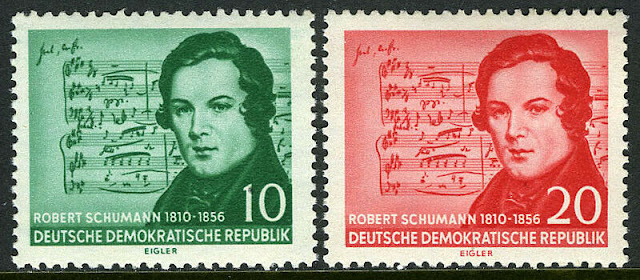

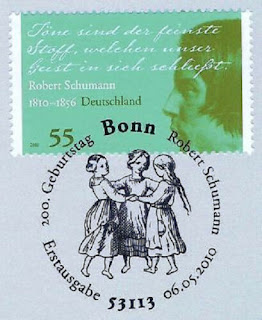

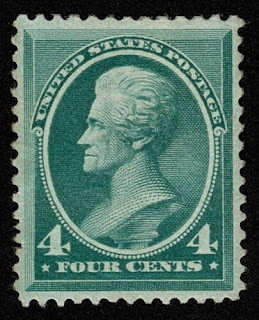
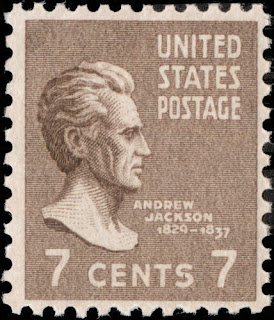

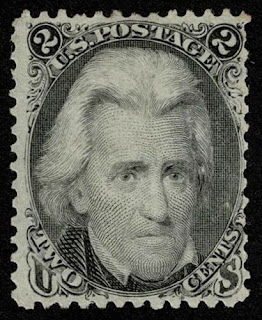


No comments:
Post a Comment